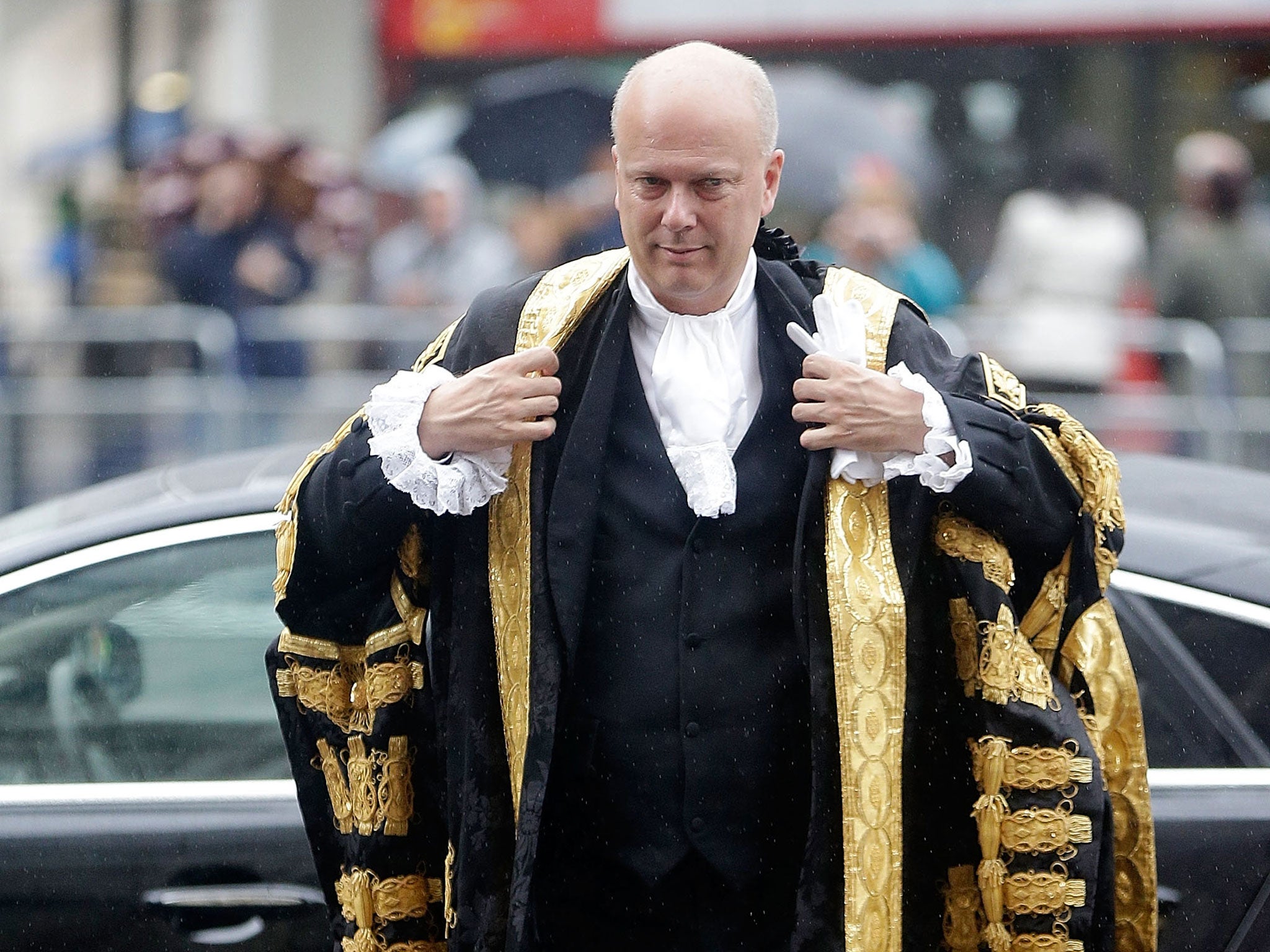The Top 10: Worst Policy Decisions
From the Praetorian Guard to Chris Grayling: 2,019 years of choices that must have seemed to someone a good idea at the time


Your support helps us to tell the story
From reproductive rights to climate change to Big Tech, The Independent is on the ground when the story is developing. Whether it's investigating the financials of Elon Musk's pro-Trump PAC or producing our latest documentary, 'The A Word', which shines a light on the American women fighting for reproductive rights, we know how important it is to parse out the facts from the messaging.
At such a critical moment in US history, we need reporters on the ground. Your donation allows us to keep sending journalists to speak to both sides of the story.
The Independent is trusted by Americans across the entire political spectrum. And unlike many other quality news outlets, we choose not to lock Americans out of our reporting and analysis with paywalls. We believe quality journalism should be available to everyone, paid for by those who can afford it.
Your support makes all the difference.As Matthew Parris compares Brexit to Suez, and Andrew Adonis compares it to Appeasement, Chris Jones suggested a list of the worst policy decisions. He excluded decisions about military action, which knocked out Suez, and indeed Appeasement, and I excluded the vote to leave the European Union. I think that it is too early to say whether the Leave decision was a bad one or not (or indeed whether it will happen), and my view is that, whatever you think of the outcome, David Cameron’s decision to promise a referendum was inevitable, democratic and right.
That left the following 10 disastrous decisions, presented in chronological order.
1. Praetorian Guard, 2 BC. Mike Duncan, historian of Rome, “makes a good case for putting the Praetorian Guard under a single commander and giving it a base in Rome”, according to Steve Van Riel. The Guard thereafter often disposed of emperors and chose new ones.
2. Darien scheme, 1698. Scotland’s attempt to establish its own colony in Central America, now a still mostly uninhabited region of Panama. Bankrupted the Scottish ruling class and forced it to seek the Act of Union with England, 1707. Nominated by Chris Jones.
3. US Prohibition, 1920. Eighteenth amendment to the Constitution banning the sale of alcohol; lasted 13 years, destroying tax revenue and boosting organised crime.
4. Return to the Gold Standard, 1925. Winston Churchill, the Conservative Chancellor, trapped by the orthodox economics of the time, restored the convertibility of the pound into gold, which had been suspended in the Great War. It sustained mass unemployment and intensified the Depression, but at least allowed John Maynard Keynes to develop his new economic theories. Thanks to Graham Kirby.
5. Opting out of the European Coal and Steel Community, 1951. The UK, under Clement Attlee’s government, missed out on the precursor of the European Community, which was formed in 1956. This was probably a mistake. Suggested by Spinning Hugo. See also no 9.
6. Great Leap Forward, 1958. The collectivisation of China forced by Mao Zedong, in which tens of millions died. Chris Jones.
7. Rejection of “In Place of Strife”, 1969. The attempt by Barbara Castle, Labour Employment Secretary, to reform industrial relations that was sabotaged by James Callaghan, who reaped the whirlwind as Prime Minister in the Winter of Discontent 1978/79.
8. Poll tax, 1989 in Scotland, 1990 in England and Wales. I wrote an article for the New Statesman before the 1987 election headlined, “Tory plan to tax the floating voter.” I may have mentioned that before.
9. The euro, 1999. Graham Kirby nominated the UK’s decision not to join. Spinning Hugo nominated the whole idea of the currency. I am with Hugo on this one: not only was there never any prospect of the UK adopting the euro – a referendum was required – but it has been disastrous for most of southern Europe and has not resolved its structural contradictions yet.
10. Most of Chris Grayling’s policies as Justice Secretary, 2012-15. Raised employment tribunal fees, ruled unlawful by the Supreme Court this week; cut legal aid for prisoners, overturned in the courts in April; banned books being sent into prisons, raised criminal court fees and sold a prisons training contract to Saudi Arabia – all cancelled by Michael Gove, his successor.
I rejected the Duties in American Colonies Act 1765, better known as the Stamp Act, nominated by Kit Bird. It started the movement that led to American independence, but (a) that would probably have happened soon enough anyway, and (b) it wasn’t a disaster, for either side.
I could have had rent controls in various places at various times, but that featured in Top 10 Zombie Policy Ideas. As did protectionism: the Corn Law, 1815, was nominated by Peter Warner and Elliot Kane, and Chris Jones suggested the US Smoot-Hawley Tariff Act, 1930.
In addition to the poll tax, The Blunders of our Governments, by Anthony King and Ivor Crewe, 2013, featured the Millennium Dome and membership of the European Exchange Rate Mechanism. The Dome cost too much public money, but it is popular now; and the ERM wasn’t a terrible policy to start with. There was a bit of pain in the middle, and the forced devaluation was a national humiliation, but leaving it laid the foundation for 16 years of unbroken growth.
Next week: Best Opening Shots of Films
Coming soon: Useless Words, such as utilise
The e-book of Listellany: A Miscellany of Very British Top Tens, From Politics to Pop is just £3.79. Your suggestions, and ideas for future Top 10s, in the comments please, or to me on Twitter, or by email to top10@independent.co.uk
Join our commenting forum
Join thought-provoking conversations, follow other Independent readers and see their replies
Comments